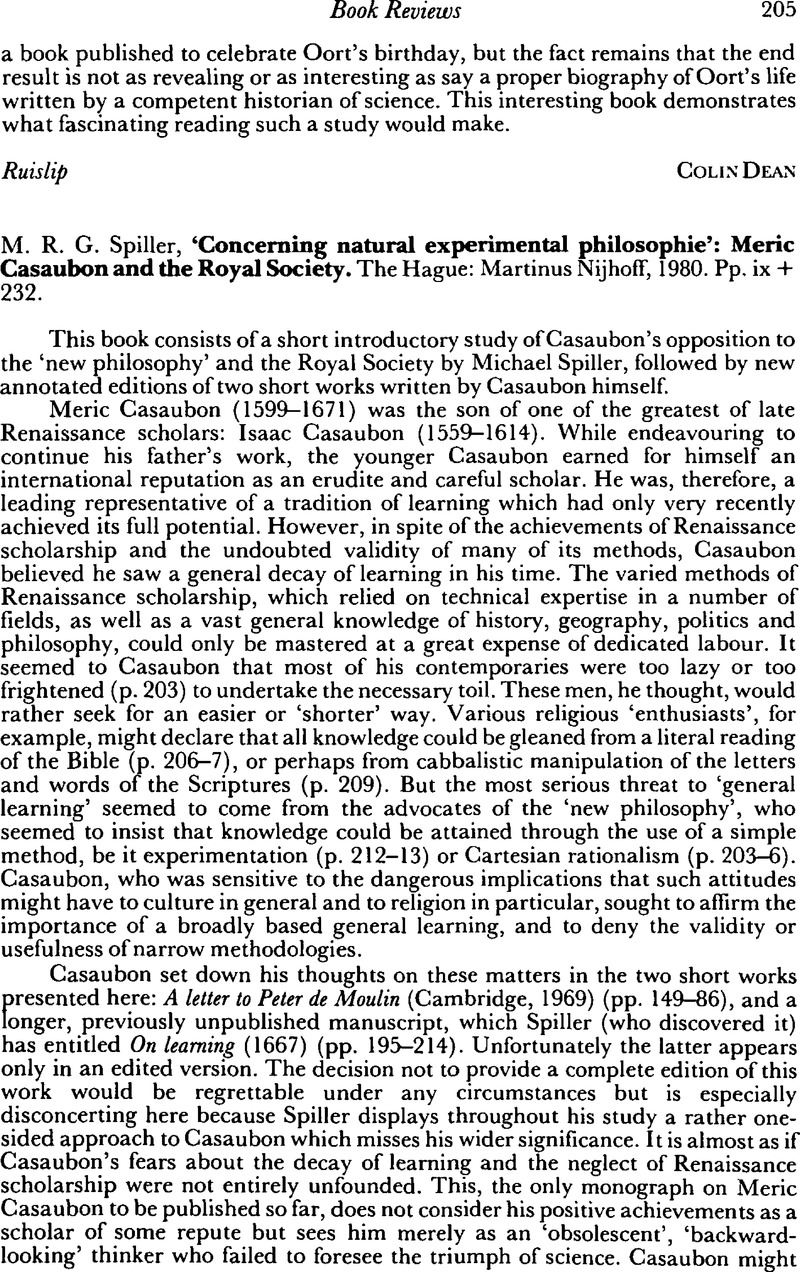No CrossRef data available.
Article contents
Lives and Works - M. R. G. Spiller, ‘Concerning natural experimental philosophie’: Meric Casaubon and the Royal Society. The Hague: Martinus Nijhoff, 1980. Pp. ix + 232.
Published online by Cambridge University Press: 05 January 2009
Abstract

- Type
- Book Reviews
- Information
- Copyright
- Copyright © British Society for the History of Science 1983
References
1 See Levine, J. M., ‘Ancients, moderns, and history: the continuity of English historical writing in the later seventeenth century’, in Korshin, P. J. (ed.), Studies in change and revolution: aspects of English intellectual history, 1640–1800 Menston, 1972, 43–75.Google Scholar
2 Sailor, D. B., ‘Moses and atomism’, Journal of the history of ideas, 1964, 25, 3–16CrossRefGoogle Scholar; and McGuire, J. E. and Rattansi, P. M., ‘Newton and the “Pipes of Pan”’, Notes and records of the Royal Society, 1966, 21, 108–43.CrossRefGoogle Scholar
3 This forms a short appendix to his Scire/i tuum nihil est: or, the authors defence of the vanity of dogmatizing …, London, 1665, pp. 77–91.Google Scholar
4 Glanvill's Letter contains large sections of paraphrase from Patrizi's Veritatis studiosis which appeared as an appendix to his Nova de universis philosophia, Venice, 1593. The appendix, also written for apologetic purposes, is a synopsis of some of the conclusions Patrizi arrived at in his monumental Discussiones peripateticae, Basle, 1581.
5 See my article on White, forthcoming in Ueberwegs Grundrisse der Geschichte der Philosophie, 13th edition, Basle/Stuttgart.
6 Hunter, Michael, Science and society in Restoration England, Cambridge, 1981, pp. 148–59.Google Scholar


